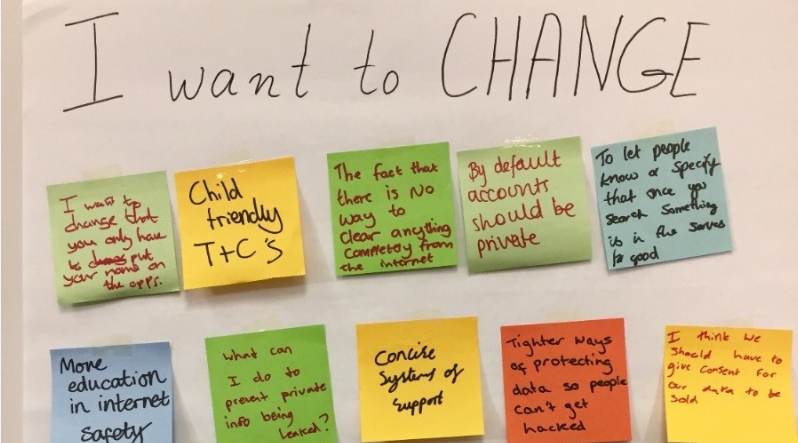The 2014 Internet Governance Forum is taking place now in Istanbul until 5 September. We have in the past heard from a variety of scholars and activists on internet governance, so this time we decided to ask some questions of the Youth IGF Project representatives who are attending the Forum. In this interview, Harriet Kempson, Zach Da Silva and Eleanor Lee, three young people attending this year’s IGF as part of the project, talk about their policy priorities and vision for internet governance.
1. One of the sessions Childnet’s youth representatives are participating is on child safety AND child rights. There is often much talk about protecting children online, keeping them safe, but less about their rights as users. How do you think this should be handled or a balance struck?
It’s very important to ensure that young people have a chance to be creative and to explore good aspects of the internet. However, there needs to be some systems in place to protect against the exploitation of young people and to support their well-being, though these protections can’t be too restrictive or limit young people’s internet access or how they use the internet.

2. Other workshops you are participating in focus on privacy and anonymity. We often hear that your “sharing” generation has no concept of privacy. Is that true? To what extent is privacy online important?
It depends on what you mean by privacy. Young people often feel they need to keep things private from their friends and family, but are less concerned about companies getting hold of our data or are not aware of the risks this poses.
Because so many young people use privacy settings, it’s clear that they do take an interest and they are conscious about how public the information they share is. They do want a level of protection for the things they say and their thoughts.
It’s nice to hear more from the technical side of the conference – from people who can explain a more detailed definition of what privacy is, as not as much is known about cookies, and the ways businesses use your data to make money from you.
3. What is your vision for the future of internet governance?
It’s so important to get everyone who has a role to play together to discuss these issues, rather than working separately in different countries. We think it would help to establish some basic human rights on the internet (like the UN Convention on the Rights of the Child) that everyone could agree to.
It’s great to have young people at the IGF from the UK, Denmark, Holland, Ireland and Hong Kong – but there needs to be more representation from the wide range of young people who use the internet. We don’t represent all children globally, as you need to have the interest and ability to take part in this conference.
Our vision for the future is an internet where all young people are not abusive in their language but freely and confidently express whatever thoughts they have, and are knowledgeable enough to use the internet as a way of connecting to youth worldwide.
4. What is the most important thing you’d like to communicate to world leaders?
The youth are key stakeholders in the internet too, so our opinions and voices should be heard, and we have as much of a right to have our views listened to as any key stakeholders. Young people today are getting more aware of what’s going on around them, growing up faster, and are very tech savvy. We use the internet as much as others, and so we should also have an equal say and be consulted more often, especially as these things will be implemented when we are adults.
The Youth IGF Project is an initiative of Childnet and aims to facilitate the participation of youth at the IGF. You can also participate remotely in this year’s IGF.





